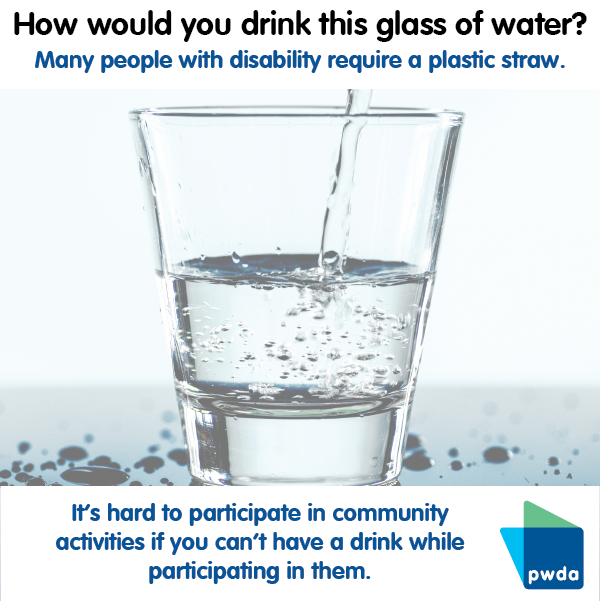Plastic straws are in the news, with people concerned about the impact they have on the environment. But for many people with disability, plastic straws are an essential accessibility tool that means we can have a drink safely and easily.

Many alternatives to plastic straws won’t work for people with disability and an outright ban will be harmful. We don’t support a ban and we want campaigners to listen to people with disability about why a plastic straw ban is a bad idea.
Instead of a ban, people who don’t want to use plastic straws should be able to say so when they are buying a drink. Then plastic straws will be available for people with disability, so we can have access to safe ways to have a drink just like everyone else.
For people with disability who do need straws, asking them to bring their own, to wash and clean straws and to purchase straws creates further barriers in the way of people with disability having access to the community. It’s hard to participate in community activities if you can’t have a drink while doing this.
This is a chart, compiled by Sarah Packwood, about why the alternatives don’t work for many people with disability.

Read more about this issue:
ABC – Disability advocates condemn South Australia’s proposed ban on single-use plastics
Probono News – Disabilities community’s fury over single-plastic ban
Talking Disability – Environmental debate the ‘final straw’ for people with disability
Alice Wong – The Last Straw
Penny Pepper – I rely on plastic straws and baby wipes. I’m disabled – I have no choice
s.e.smith – Banning straws might be a win for environmentalists. But it ignores us disabled people.
